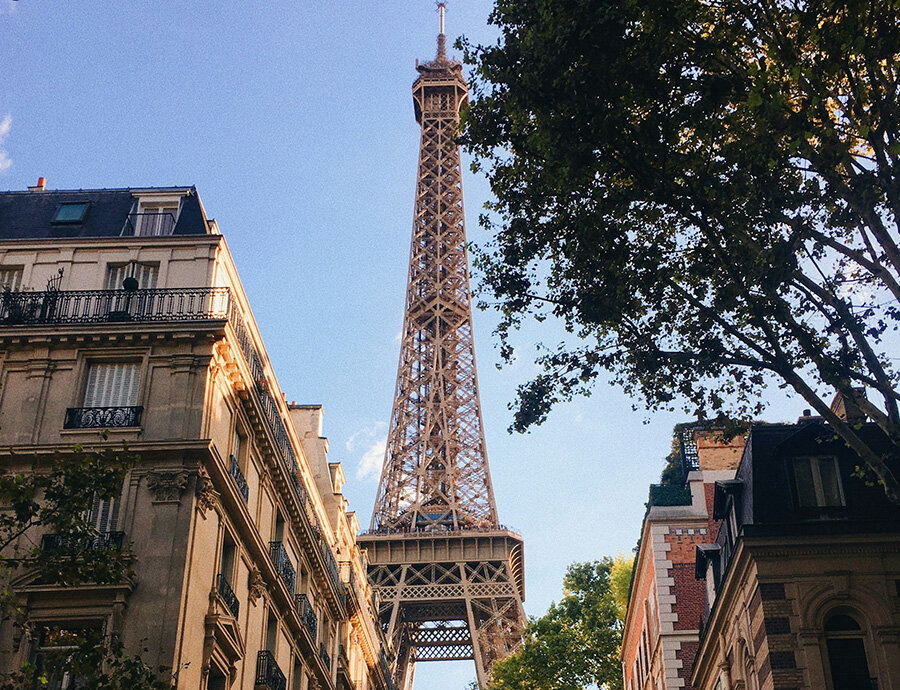Paris Real Estate: Premium Segment Stable as General Market Adjusts

The Paris property market continues to experience a general decline, but 2025 has brought signs of stabilization. Buyer activity is rising—particularly in the city's most prestigious districts, as noted by the Paris Notaries Chamber. While international credit agencies have downgraded expectations for France’s economy, analysts are expressing cautious optimism about the capital’s real estate.
In January 2025, the average price per square meter in Paris fell by 4.5% year-on-year, down to €9,880. Transaction volume dropped by around 10%, with the sharpest declines in non-central neighborhoods. Real estate network IAD reported that the average price for an apartment on the secondary market fell to €6,934/sq.m, 5% lower than last year. Private house prices also declined by 5.1%, reaching €4,813/sq.m. According to Paris Property Group, a modest quarterly price increase of 0.7% was recorded at the beginning of 2025, suggesting a possible end to the four-year market downturn.
What’s Driving Demand?
Experts cite falling mortgage rates as a major factor. In early 2025, banks were offering home loans at 3.5%, significantly lower than previous peaks. This sparked an increase in buyer interest, reduced discounts, and sped up transaction closures.
Premium districts are seeing the most resilience. In the 7th arrondissement, including Saint-Thomas d’Aquin, average prices remain at around €19,000/sq.m, with some properties exceeding €20,000/sq.m. These areas saw price drops of less than 2%. Districts like Saint-Germain-des-Prés, Odéon, and the 6th and 8th arrondissements remain stable thanks to tight supply and consistent interest from international buyers.
Long-Term Value in Central Paris
Over the past decade, capital appreciation in the 6th and 7th arrondissements has reached around 35%. The 8th arrondissement, home to luxury residences and commercial buildings, posted 7.1% growth over five years, above the citywide average of 4.5%.
According to Global Property Guide, average rental yields in Paris stand at 4.83%—a modest figure considering the high taxes, maintenance costs, and utility expenses. As in many developed markets, rental profitability remains limited.
In 2025, investors also face new restrictions: properties with the lowest energy efficiency ratings (category G) can no longer be rented unless upgraded. An estimated 567,000 homes nationwide must be renovated to meet new standards. Such properties are typically bought for capital preservation or prestige, rather than income.
International Interest Remains Strong
Despite economic risks, Paris’ luxury real estate market remains a target for global investors. Reuters reports that U.S. firm Greystar plans to invest €1.4 billion in French and German assets, including Paris.
Analysts view the current mix of price corrections and favorable borrowing conditions as a rare window of opportunity in France’s high-end property market.
Forecasts for 2025
Experts from FNAIM predict market stabilization in H1 2025 and gradual growth in H2, with annual price gains around 1%, assuming favorable lending conditions remain. Key risks include:
- Political instability
- Changes to rental tax incentives
- Weakened sovereign credit ratings
Both Fitch Ratings and Moody’s have downgraded France’s outlook, citing rising public debt, budget challenges, and fragmented political consensus. These factors could eventually impact real estate appeal.
Meanwhile, the French government is pushing reforms in taxation and spending cuts, but progress is slowed by political resistance.








